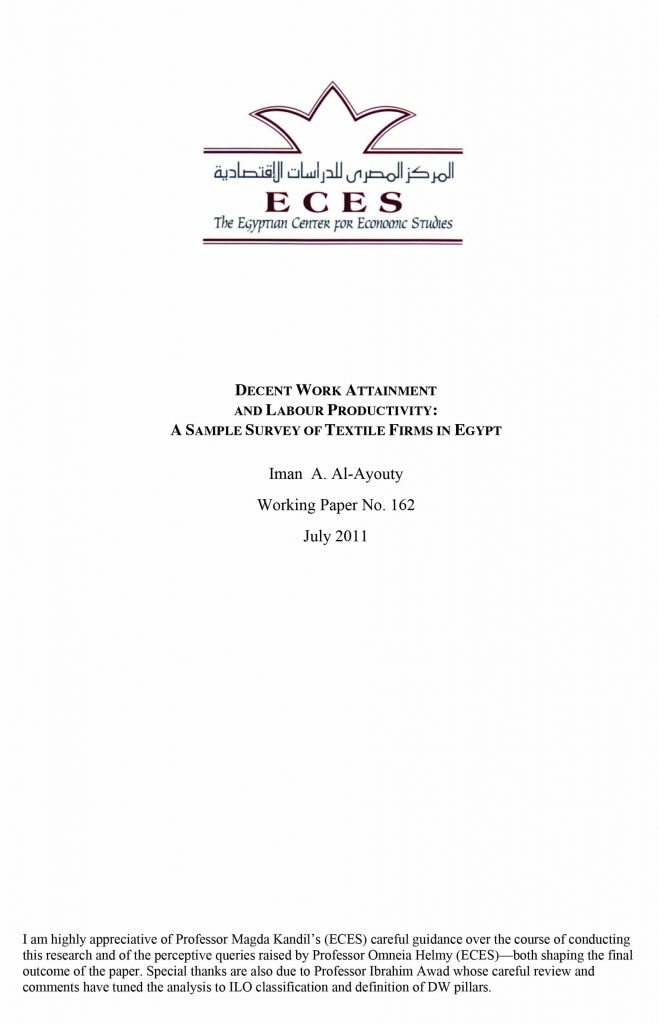Abstract:
This study explores the effect of decent work attainment on labour productivity in Egypt, using a sample survey of 50 textile and apparel firms employing 50 or more persons. These firms belong to an industry that is a primary contributor to employment, exports, output and value added in the manufacturing sector at large. Closed questions, developed from a host of macro decent work indicators, are addressed to the employer and an employee in each of the sample firms. Questionnaire responses are descriptively analyzed and subsequently used in a cross section econometric estimation of labour productivity in relation to decent work pillars (rights at work and labour standards; employment and income opportunities, social protection and social dialogue), as well as their respective sub-pillars. Findings generally indicate that enhanced labour productivity is related to increased job satisfaction. Such satisfaction embraces the enjoyment of basic rights, assurance of non-discrimination, abolition of child labour, provision of a work environment conducive to health and safety, provision of benefits and incentives, provision of adequate pay and pension scheme, and the availability of an appropriate venue for voicing employee concerns. Firms, thus, have the potential to increase labour productivity through their awareness and identification of where they truly fall short of attaining decent work.

